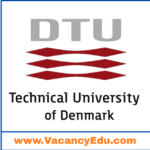Inria, France invites online Application for number of Fully Funded PhD Degree at various Departments. We are providing a list of Fully Funded PhD Programs available at Inria, France.
Eligible candidate may Apply as soon as possible.
(01) PhD Degree – Fully Funded
PhD position summary/title: PhD Position F/M Stochastic modelling of dynamical resource allocation and analysis of single-cell data
The Ph.D. project will be carried out in the project-team MICROCOSME at Inria Grenoble – Rhône-Alpes under the joint supervision of Aline Marguet (https://team.inria.fr/microcosme/aline-marguet/) and Hidde de Jong (https://team.inria.fr/microcosme/hidde-de-jong/) within the framework of the ARBOREAL ANR project (https://project.inria.fr/arboreal/). MICROCOSME is an interdisciplinary team that includes applied mathematicians, engineers, computer scientists, biologists as well as experimentalists from the microbiology/biophysics team BIOP of the Université Grenoble-Alpes (https://liphy.univ-grenoble-alpes.fr/fr/recherche/equipes/biop-fluctuations-regulations-et-evolution-systemes-vivants).
Deadline : 2025-09-30
(02) PhD Degree – Fully Funded
PhD position summary/title: PhD Position F/M Topology Design for Decentralized Federated Learning
The increasing size of data generated by smartphones and IoT devices motivated the development of Federated Learning (FL) [li20,kairouz21], a framework for on-device collaborative training of machine learning models. FL algorithms like FedAvg [mcmahan17] allow clients to train a common global model without sharing their personal data. FL reduces data collection costs and can help to mitigate data privacy issues, making it possible to train models on large datasets that would otherwise be inaccessible. FL is currently used by many big tech companies (e.g., Google, Apple, Facebook) for learning on their users’ data, but the research community envisions also promising applications to learning across large data-silos, like hospitals that cannot share their patients’ data [rieke20].
In the classic FL setting, a server coordinates the training phase. At each training round, the server sends the current model to the clients, which individually train on their local datasets and send model updates to the server, which in turn aggregates them (often through a simple averaging operation). In contrast to this client-server approach, decentralized FL algorithms (also called P2P FL algorithms) work by having each client communicate directly with a subset of the clients (its neighbours): this process alternates between model updates and weighted averaging of the neighbours’ models (consensus-based optimization). Decentralized algorithms can take advantage of good pairwise connectivity, avoid the potential communication bottleneck at the server [marfoq20] as well as provide better privacy guarantees [cyffers22].
The communication graph (i.e., the graph induced by clients’ pairwise communications) and the local clients’ aggregation strategies play a fundamental role in determining FL algorithms’ convergence speed. In particular, the communication topology has two contrasting effects on training time. First, a more connected topology leads to faster convergence in terms of number of communication rounds [nedic18]. Second, a more connected topology increases the duration of a communication round (e.g., because it may cause network congestion), motivating the use of degree-bounded topologies where every client sends and receives a small number of messages at each round [lian17]. Most of the existing literature has focused on one aspect or the other.
Deadline : 2025-08-31
View All Fully Funded PhD Positions Click Here
(03) PhD Degree – Fully Funded
PhD position summary/title: PhD Position F/M PhD – Uncertainty Quantification for PET reconstructed images with AI
PET is a functional and quantitative nuclear medicine imaging modality, with applications in oncology, neurology and pharmacology. Estimating images of the injected radiotracer distribution to the patient from the acquired tomographic data is a large-scale ill-posed inverse problem (typically millions of estimates for hundreds of millions of projections) that requires numerically efficient reconstruction methods.
AI-based techniques developped in this context have led to superior signal to noise ratio and contrast recovery compared to generic (non-AI) reconstruction techniques. This opens up the possibility to a reduce the dose injected to the patient without sacrificing image quality and quantification [1]. However a major challenge remains to obtain reliable quantitative estimates.
In the Opis and BioMaps teams, several reconstruction techniques (deep unrolling and Plug and Play) have been proposed for robust image reconstruction using AI [2,3]. In parallel, the teams have investigated uncertainty quantification using Bayesian Neural Networks (BNN) [4] and the posterior bootstrap framework for classical reconstruction [5]. This PhD thesis proposes to investigate the use of these techniques to obtain reliable and robust estimates in PET reconstructed images.
Deadline : 2025-08-31
(04) PhD Degree – Fully Funded
PhD position summary/title: PhD Position F/M Authoring interactive public science lectures
The project is a collaboration between Theophanis Tsandilas, a researcher at Inria Saclay, and Julien Bobroff, a physics professor at the Université Paris-Saclay and a renowned science popularizer.
The scientific contributions of the PhD thesis will be centered on HCI (Human-Computer Interaction) research, aligning with expertise of Theophanis Tsandilas. The PhD student will be hosted by ex)situ an Inria team at the Laboratoire Interdisciplinaire des Sciences du Numérique at the Université Paris-Saclay, with extensive experience in multidisciplinary collaborations.
Julien Bobroff and his team, La Physique Autrement, will guide the entire design process through their expertise in science communication. This team is unique in that it combines innovation, public testing and research in communication sciences and pedagogy. Over the past decade, the team has designed over 300 original popularization projects in a wide range of formats. Julien himself has an audience of nearly a million subscribers on various social networks: TikTok, Instagram, YouTube, etc.
The PhD thesis is fully funded by the Université Paris-Saclay (SPRINGCS 2025 program). The funding also covers expenses for equipment and conference participation during the course of the thesis.
Deadline : 2025-08-30
(05) PhD Degree – Fully Funded
PhD position summary/title: PhD Position F/M Formal Verification of Higher-Order, Probabilistic Programs
This PhD thesis project is part of the ANR project HOPR (Higher-Order Probabilistic and resource-aware Reasoning) (ANR-24-CE48-5521-01) coordinated by P. Baillot, starting in 2025 and aiming at defining expressive logical frameworks, dealing in particular with higher-order computation and probabilities, which can serve to reason on cryptographic primitives and protocols and on differential privacy. The project has three partner sites: INRIA Lille/CRIStAL; INRIA Paris; IRISA Rennes and INRIA Sophia-Antipolis. It is starting in January 2025 for 4 years.
The recruited PhD student will carry out her/his research within the SPLITS and OLAS project-teams at INRIA Sophia Antipolis, under the supervision of B. Gregoire and M. Avanzini
Deadline : 2025-07-31
Polite Follow-Up Email to Professor : When and How You should Write
Click here to know “How to write a Postdoc Job Application or Email”
(06) PhD Degree – Fully Funded
PhD position summary/title: PhD Position F/M Storytelling en 3D reproductible et immersif pour le patrimoine culturel
The main goal of this thesis is to design, implement and evaluate tools to explore cultural heritage documents in their spatial context and the relationships among them. They will be targeted to domain-experts and the general public.
Deadline : 2025-07-31
(07) PhD Degree – Fully Funded
PhD position summary/title: PhD Position F/M Augmented Reality for Situated Outdoor Geospatial Data Visualization
Augmented Reality (AR) superimposes information in the user’s field of view and is particularly relevant to outdoor contexts of use, where users can access digital data and seamlessly relate those data to their physical surroundings. This can be useful for leisure activities (outdoor games, tourism), but in a variety of work contexts as well such as urban planning, construction work, and a variety of scientific activities.
To take one particular example, geologists often need to access data about the location they are currently visiting: terrain models, soil sample data analyses, databases and documents about the area, including maps. Augmented Reality can provide effective support to such users, by enabling them to display data in their field of view, directly integrating digital information with the physical environment. Users can then interact with the virtual content using freehand gestures, combining them with pen-based input on a handheld tablet when relevant.
However, designing visualization techniques for such outdoor contexts raises multiple challenges that stem from the scale of the physical environment considered, varying outdoor conditions (weather, natural light), the need for geologists to effectively switch between different situations, and the need for geologists to orient themselves and plan the next steps of their terrain explorations, among many others.
The goal of this PhD is to design, prototype and evaluate interaction techniques and visualization techniques to effectively support geologists in the field, addressing the above challenges using combinations of interactive devices: augmented reality eyewear; handheld tablets and digital pens; and a combination thereof.
Deadline : 2025-07-31
(08) PhD Degree – Fully Funded
PhD position summary/title: PhD Position F/M Reliability Enhancement of Post-Von Neumann Hardware Accelerators
Artificial Intelligence (AI) is increasingly indispensable across various society sectors due to its potential to transform conventional applications, from smart homes to safety-critical systems like autonomous driving and space exploration. Deep neural networks (DNNs) are state-of-the-art AI methods that outperform other approaches in language processing, image and video classification, audio and radar processing, and instance segmentation [1–3]. Notably, DNNs such as OpenAI GPT-4, Meta LLaMA2, and Mistral Mixture of Experts have captivated public interest with their high accuracy.
Due to their resource-intensive nature, DNNs require powerful dedicated hardware accelerators, such as GPUs and TPUs. However, large hardware accelerators are unsuitable for embedded safety-critical systems due to their high energy consumption. New unconventional accelerator architectures like the ones based on PIM [4] and neuromorphic computing [5] have been proposed for complex DNN deployment in critical applications where power and performance are critical requirements, offering energy-efficient alternatives to traditional GPUs and TPUs. However, their reliability, particularly against radiation-induced faults, remains to be fully assessed.
In this Ph.D., we will identify hardware and software vulnerabilities in PIM accelerators for DNNs and propose fault mitigation techniques.
Deadline : 2025-07-31
Click here to know “How to Write an Effective Cover Letter”
(09) PhD Degree – Fully Funded
PhD position summary/title: PhD Position F/M Coordinating multiple autonomic feedback loop managers in the Cloud/Edge computing
The approach consists of exploring novel compositions of controllers and decision techniques, exploiting their complementarities, and applying them to concrete resource management problems that can benefit from them.
Compositions of loops will be studied at the level of software architectures of autonomic managers, exploring coordination mechanisms with a “black box” vision via mechanisms of vote or consensus, or “white box” with more internal integration (e.g., control and constraints), or “grey box” at intermediary levels of integration.
Deadline : 2025-07-11
(10) PhD Degree – Fully Funded
PhD position summary/title: PhD Position F/M Privacy-Enabled AI Job Execution on Heterogeneous Consumer Hardware Architectures
The main objective of this PhD is to provide middleware-like software support able to distribute and run AI workloads on resources hosted on end-user computers, according to their software and hardware capabilities, while taking into account users’ privacy requirements. Several research questions will be considered:
• How to ensure the privacy of AI processing on computers with heterogeneous capabilities, taking advantage of end-user hardware security capabilities?
• How to adapt AI processing to take advantage of these security capabilities?
• What trade-offs between security and performance need to be addressed?
• How to dynamically distribute jobs across participating nodes to balance those trade-offs?
Deadline : 2025-07-05
Connect with Us for Latest Job updates
(11) PhD Degree – Fully Funded
PhD position summary/title: PhD Position F/M PhD student on privacy-preserving federate learning with applications in oncology
This PhD student position will be supported by the HE Trumpet project, the HE Flute project and/or the PEPR IA Redeem project. While this position will be in the MAGNET team in Lille, we will collaborate with the several European project partners.
While AI techniques are becoming ever more powerful, there is a growing concern about potential risks and abuses. As a result, there has been an increasing interest in research directions such as privacy-preserving machine learning, explainable machine learning, fairness and data protection legislation.
Privacy-preserving machine learning aims at learning (and publishing or applying) a model from data while the data is not revealed. Statistical privacy allows for bounding the amount of information revealed.
The MAGNET team is involved inthe related TRUMPET, FLUTE and REDEEM projects, and is looking for team members who can in close collaboration with other team members and national & international partners contribute to one or more of these projects. All of these projects aim at researching and prototyping algoirhtms for secure, privacy-preserving federated learning in settings with potentially malicious participants. The TRUMPET and FLUTE projects focus on applications in the field of oncology, while the REDEEM project has no a priori fixed application domain.
Deadline : 2025-06-30
Polite Follow-Up Email to Professor : When and How You should Write
(12) PhD Degree – Fully Funded
PhD position summary/title: PhD Position F/M Scalable Translation Validation for High-Performance Computing and Machine Learning
The PhD thesis will be held at Ecole Normale Supérieure (ENS-Lyon), in Lyon, France. ENS-Lyon is one of the top public universities in France and its ranked among the best universities in the world (QS world university ranking: 184).
The PhD student will be an employee of Inria, the French National Research Institute of Research in Computer Science which covers a wide spectrum of research in Computer Science.
This PhD thesis is within a collaboration framework between Inria Lyon and Iowa State University (USA).
Deadline : 2025-06-30
(13) PhD Degree – Fully Funded
PhD position summary/title: PhD Position F/M Machine Learning based Program Recognition
The overall objective is to design a static analysis able to recognize automatically a program by leveraging machine learning; and its application to automatic program optimization. The research includes the implementation of the solution and the experimental validation required for the related publications.
Deadline : 2025-06-30
(14) PhD Degree – Fully Funded
PhD position summary/title: PhD Position F/M tVISt: Data Visualization Beyond Planar Displays
The world is flat and rectangular when it comes to the types of physical screens that we use for representing data and making decisions. Display technology, however, is already evolving quickly: curved, bendable, and highly flexible displays, spherical displays, cubed displays, and even drone-based displays have emerged and are commercially available. These novel types of displays offer new ways to represent and explore data embedded in everyday environments, to communicate it, and share it. For a possible future in which non-planar displays will be ubiquitous, however, there are open questions about what visualizations should look like on these displays, how we would interact with them, and how people would engage with them. Non-planar displays, therefore, not only pose perceptual challenges for data visualization, but it is also yet largely unexplored which visualization types work on them and how to create effective and appealing interactive data visualization experiences. As such, the potential and the challenges of these displays for visual data representation remain unexplored. There are two PhD projects part of a larger international funded project that aims to escape from the “display flatland” that characterizes today’s research in visualization. It will establish foundations for how to engage with a future in which physical displays take on several different form factors and become truly embedded in our environments.
Deadline : 2025-06-30
(15) PhD Degree – Fully Funded
PhD position summary/title: PhD Position F/M Construction of a simulation-ready torso conductivity map library and data generation for the electrical impedance tomography (EIT) Bayesian inverse problem
In this project, we study the reconstruction capabilities of Bayesian inference methods for biomedical inverse problems. The primary application is electrical impedance tomography (EIT). In particular, we plan to construct statistical distributions of realistic human torso volume geometries and incorporate them in Bayesian inference methods for the EIT inverse problem. This a priori information will be obtained from publicly available CT and MRI images as well as artificially generated images from training images.
Our starting point will be publicly available CT images in two repositories. The CT images will be used to construct a library of realistic conductivity maps that serve as inputs to the forward solver of the EIT problem. The forward solver will be an immersed boundary method to which the pixelated conductivity maps can be coupled in a natural way. A large number of numerical simulations will beperformed to generate EIT data under a variety of experimental conditions for the conductivity maps in the library.
The constructed data libraries will be used to provide prior distribution information on the conductivity maps to be estimated in the EIT torso inverse problem. We will also provide statistical distributions of biological and geometrical parameters associated with the conductivity maps in the library. We expect to incorporate the libraries and the statistical information in a Bayesian inversion algorithm.
Deadline : 2025-06-30
(16) PhD Degree – Fully Funded
PhD position summary/title: PhD Position F/M Computational approaches for knowledge graph mining and completion dealing with uncertainty
This PhD thesis takes place within the MetaboLinkAI ANR-SNF project, which aspires to revolutionize the analysis and interpretation of metabolomics data through a multidisciplinary approach that combines a comprehensive knowledge graph hub (MetaKH) with cutting-edge artificial intelligence (AI) and machine learning (ML) techniques. The project’s main goals are to enhance the querying and ease of use of metabolomics data, improve research efficiency, and stimulate creativity in the field. These objectives are set to surpass current standards by creating an encyclopedic and expandable knowledge base, integrating advanced AI to handle the uncertainties of experimental data, and enabling a broader range of hypothesis testing and evaluation.
Within this project, we will focus on developing innovative methodologies and tools, such as graph mining methods, to enhance data interaction, analysis capabilities, and representation of uncertainty.
One distinctive peculiarity of metabolomics data (and thus MetaKH) is incompleteness, variable confidence and inherent uncertainty. Here, we adopt AI to enhance the completeness and reliability of the KG and to correctly account for uncertainty.
Deadline : 2025-06-30
(17) PhD Degree – Fully Funded
PhD position summary/title: PhD Position F/M Decentralised Market-based Application Orchestration in Fog and IoT Environments
In the context of the TARANIS project (PEPR Cloud), we are offering a PhD position to investigate flexible and decentralised application orchestration in fog environments.
The work will be carried out within the MAGELLAN team (Inria Centre at Rennes University, IRISA) at Rennes. Rennes is the capital city of Brittany, situated in the western part of France. Well-connected to Paris via a high-speed train line, Rennes is a lively city and a major center for higher education and research. The work will involve close collaboration with the STACK team (IMT Atlantique, Inria, LS2N) at Nantes.
Deadline : 2025-06-29
(18) PhD Degree – Fully Funded
PhD position summary/title: PhD Position F/M Digital Tools for accompaniment of people with disabilities for sport activities
Sport plays an important role in the well-being of individuals: it is known to improve the self-esteem and the autonomy of people with disabilities, as well as the social inclusion [1]. Practicing sport has also a positive impact on rehabilitation and motivation. The Paris 2024 Paralympic Games have called for a revolution for parasport. Beyond the event, we must now focus on strengthening and promoting the practice of sport by people with disabilities at all levels.
The proposed PhD aims then to offer technological tools to improve performances of users of power wheelchairs: analysis of sessions, training aid, rehabilitation tools through sport. To this aim, we propose to design solutions compatible with the virtual reality power wheelchair simulator developed at INSA Rennes as part of the European Interreg ADAPT project. Simulators have already been proven to be efficient in the context of rehabilitation [2] [3] and we want to extend the study of the possibilities offered by these platforms to sport situations. The targeted use case is the powerchair football. The team in Rennes expressed the need to help the players to better take benefit of this sport.
Deadline : 2025-06-29
(19) PhD Degree – Fully Funded
PhD position summary/title: PhD Position F/M Hardware Acceleration for Unmanned Aerial Vehicle Control Algorithms
Robots are physical agents that interact with their physical environment. Accordingly, their sensorimotor capabilities are essential and largely determine the activities that robots can perform. In recent years, great progress has been made in sensory capabilities thanks to significant advances in machine learning and dedicated hardware. In contrast, much less progress has been made in motor skills. Examples of promising approaches in the current scientific literature are Model Predictive Control (MPC) [1] and Model Predictive Path Integral (MPPI) control [2], where control actions are optimized over a finite time horizon, considering the time evolution of robot dynamics to optimize a given cost or reward function that describes the robot motion. Such algorithms are particularly suited for optimizing control trajectories and planning horizons in real time due to their ability to handle dynamic environments.
From a control perspective, planning a horizon that is as long as possible to manage complex trajectories while considering the environment is essential. Additionally, maintaining a high control frequency is crucial to meet the real-time demands imposed by real-world physics and, if necessary, to adjust the sequence of movements. In the resource-constrained context of small-scale UAVs, such control algorithms are crucial as they enable optimal trajectory generation and real-time decision-making in complex, dynamic, and uncertain environments. However, particularly for battery-powered UAVs, achieving a high control frequency while planning for a long horizon is difficult due to limited computational power and energy constraints [3], and conventional GPU acceleration often requires excessive energy consumption.
Deadline : 2025-06-16
How to increase Brain Power – Secrets of Brain Unlocked
(20) PhD Degree – Fully Funded
PhD position summary/title: PhD Position F/M Bayesian methods for electrical impedance tomography
The aim of this thesis project is to study the reconstruction capabilities of Bayesian inference methods for the inverse problem of electrical impedance tomography of the human torso.
The project is related to the global topic of detecting cardiac arrhythmias, in particular ventricular fibrillation. More specifically, it aims to improve a medical imaging modality (electrocardiographic imaging – ECGi) used to non-invasively reconstruct the heart’s electrical activity. One of the main aims of this imaging technique is to detect individuals at high risk of ventricular fibrillation. However, it is not yet possible to detect high-risk individuals in the general population, because current techniques for imaging the heart’s electrical activity are not sufficiently accurate or reliable.
Electrical Impedance Tomography (EIT) is a potential solution for obtaining additional information. It is a non-invasive technique for reconstructing inclusions and internal conductivities from electrical measurements at the body surface. The direct problem of EIT is to determine the electrical potential in the domain for a given conductivity distribution and for a set of currents injected through the electrodes. The inverse problem involves estimating the conductivities themselves from measurements made at the body surface. Current applications of EIT include detecting breast cancer or acute strokes, monitoring lung ventilation and sometimes monitoring cardiac activity. However, to our knowledge, EIT has never been applied in ECGi to enrich the description of the volume of the torso and its internal conductivities.
Deadline : 2025-06-16
(21) PhD Degree – Fully Funded
PhD position summary/title: PhD Position F/M Compact mesh generation for geological models
One of the fundamental challenges of geology is to understand the soil, the subsoil and its history, which makes it of great importance to society. Mapping the different types of underground rocks is the key to optimal access to water and natural resources. Knowledge of soils and their chemical composition is necessary to ensure the viability of certain plant species, and thus protect biodiversity. Finally, the study of the physics and history of landscapes improves our understanding of risks, which is key to anticipate and prevent landslides, floods, coastal erosion, etc.
One of the key challenges in the field for interactive visualization and physical simulation is to digitalize the soil and subsoil in 3D with explicit mesh-based representations. Acquired on site, geological knowledge is traditionally interpolated with implicit functions that predict the shape in the 3D space of various geological objects such as subsoil layers or faults. Mesh generation techniques are then used to create a mesh data structure that conforms to the zero value of implicit functions. These mesh generation techniques however suffer from several issues. They typically produce dense meshes, conform poorly to implicit surface intersections or discontinuities, and scale poorly to large scenes.
The main objective of this PhD is to design and implement solutions to the mesh generation problems mentioned above. In particular, the PhD candidate will investigate efficient and scalable algorithms that can produce lightweight 3D meshes whose cells conform to the implicit functions and their intersections. One of the main challenges will be to minimize the number of implicit function evaluations, as they often are computationally expensive.
Deadline : 2025-06-15
(22) PhD Degree – Fully Funded
PhD position summary/title: PhD Position F/M Trustworthy AI hardware architectures
The goal of the Ph.D. thesis is to study the impact of hardware faults not only on the AI decisions, but also on algorithms developed to explain AI (XAI) models. The objective is to make AI-HW reliable by understanding how hardware faults (due to variability, aging, external perturbations) can impact AI and XAI decisions and how to mitigate those impacts efficiently. The final goal is to enable the transparency of the AI-HW by designing self-explainable, trustworthy, reliable, and real-time verifiable AI hardware accelerators, capable of performing self-test, self-diagnosis, and self-correction.
Deadline : 2025-06-07
(23) PhD Degree – Fully Funded
PhD position summary/title: PhD Position F/M – Artificial Intelligence for structural resilience optimization under severe vibration stress: Application to fatigue testing of Military Vehicles
This PhD project aims for an advance in the simulation and design of metamaterials – engineered structures with unique physical properties surpassing natural materials. It aims to develop automated finite element methods to enhance numerical modeling, focusing on precision and efficiency in simulations while enabling predictive design of adaptive systems. The research targets critical defense technologies, including stealth, cloaking, and wave manipulation, with applications spanning multispectral furtivity, dynamic resilience, and active wave modulation, relevant to both defense and civilian contexts.
This PhD project, titled “Artificial Intelligence for Optimizing the Mechanical Resilience of Systems under Severe Vibratory Stress: Application to Fatigue Testing of Military Vehicles” aims to advance the methodologies of the NF X 50-144 standard, a key framework for environmental testing in mechanical engineering. The research will harness artificial intelligence (AI) to improve vibration analyses, offering new insights into the resilience of complex systems under extreme conditions, with a focus on defense applications.
Vibration analysis plays a vital role in ensuring the durability and reliability of military vehicles and their embedded systems, such as armament, communication, and sensor technologies. These systems face intense and variable vibrational stresses from diverse operational environments, including rugged terrains and dynamic scenarios, which current testing approaches, based on simplified assumptions, often fail to fully capture. This project will explore AI-driven solutions to address these challenges, enhancing the ability to predict fatigue and mechanical performance through advanced techniques like classification of non-stationary signals and innovative modeling and classification approaches.
Deadline : 2025-06-02
(24) PhD Degree – Fully Funded
PhD position summary/title: PhD Position F/M PhD – Symmetry-driven computational framework for metamaterial design
This PhD project aims for an advance in the simulation and design of metamaterials – engineered structures with unique physical properties surpassing natural materials. It aims to develop automated finite element methods to enhance numerical modeling, focusing on precision and efficiency in simulations while enabling predictive design of adaptive systems. The research targets critical defense technologies, including stealth, cloaking, and wave manipulation, with applications spanning multispectral furtivity, dynamic resilience, and active wave modulation, relevant to both defense and civilian contexts.
Metamaterials leverage microstructural periodicity to control electromagnetic, acoustic, or mechanical waves, offering strategic capabilities like broadband signature reduction or shock absorption. Symmetry is central to this work and a key property of periodic structures that governs wave behavior. By exploiting symmetries, the project seeks to optimize computational performance and deepen insights into metamaterial functionality.
The supervising team is pioneering wave propagation methods for periodic structures and associated computational challenges, providing top-tier expertise. Integrating mathematics, computer science, finite element techniques, computer graphics and mechanics, the research addresses complex simulation demands. Potential impacts include stealth coatings for aircrafts, adaptive armors, predictive monitoring techniques, and wave-modulating systems for stealth.
Deadline : 2025-06-01
(25) PhD Degree – Fully Funded
PhD position summary/title: PhD Position F/M Online Learning with Limited Resources
Online learning algorithms [Hazan22,Shalev12] have shown substantial promise across various future networks’ applications, including caching [Bhattacharjee20,Paschos19,SiSalem23], resource allocation in radio access networks [Kalntis24], and machine learning model placement [SiSalem24].
This thesis focuses on advancing online learning algorithms that offer theoretical guarantees against an adversary who selects the sequence of inputs with the goal to jeopardize system performance. Such adversarially robust algorithms are particularly beneficial for scenarios characterized by highly dynamic user demands and/or rapidly evolving network conditions.
A key metric in evaluating the robustness of these algorithms is regret, which measures the largest discrepancy between the algorithm’s experienced cost and that of the optimal static policy in hindsight (i.e., one that has prior knowledge of the entire input sequence). The objective is to develop algorithms with sublinear regret growth relative to input sequence length, ensuring that their per-input-average cost asymptotically approaches that of the best static policy.
Online gradient descent, follow-the-perturbed-leader or follow-the-regularized-leader [Hazan22] exemplify algorithms that achieve sublinear regret in practical applications. However, their computational and memory requirements often exceed the capacities of edge devices and/or are incompatible with tight latency constraints, largely due to for large state storage and/or projection operations over the feasible state space.
This thesis aims to design online learning algorithms optimized for reduced memory and computational overhead, making them more suitable for resource-constrained and latency-sensitive environments. Initial strategies for complexity reduction include batch processing of inputs [Faticanti24, SiSalem23], input sampling [Mazziane23], and constraint relaxation [Carra24]. Building on these approaches, this work will explore novel methods to further streamline these algorithms while preserving robust performance.
Deadline :2025-05-31
(26) PhD Degree – Fully Funded
PhD position summary/title: PhD Position F/M Robust Federated Learning
Federated Learning (FL) empowers a multitude of IoT devices, including mobile phones and sensors, to collaboratively train a global machine learning model while retaining their data locally [1,2]. A prominent example of FL in action is Google’s Gboard, which uses a FL-trained model to predict subsequent user inputs on smartphones [3].
Two primary challenges arise during the training phase of FL [4]:
Data Privacy: Ensuring user data remains confidential. Even though the data is kept locally by the devices, it has been shown that an honest-but-curious server can still reconstruct data samples [5,6], sensitive attributes [7,8], and the local model [9] of a targeted device. In addition, the server can conduct membership inference attacks [10] to identify whether a data sample is involved in the training or source inference attacks to determine which device stores a given data sample [11].
Security Against Malicious Participants: Ensuring the learning process is not derailed by harmful actors. Recent research has demonstrated that, in the absence of protective measures, a malicious agent can deteriorate the model performance by simply flipping the labels [12] and/or the sign of the gradient [13] and even inject backdoors into the model [14] (backdoors are hidden vulnerabilities, which can be exploited under certain conditions predefined by the attacker, like some specific inputs).
Differentially private algorithms [15] have been proposed to tackle the challenges of protecting user privacy. These algorithms work by clipping the gradients and adding noise to them before the transmission, ensuring that minor alterations in a user’s training dataset will not be discernible to potential adversaries [16,17,18,19,20]. By leveraging the differentially private mechanisms, [19] shows that adversaries are unable to deduce the exact local information of vehicles for the applications such as Uber. Furthermore, [20] demonstrates that the quality of data reconstruction attack is significantly reduced when training a convolutional neural network on CIFAR-10 dataset.
Deadline : 2025-05-31
(27) PhD Degree – Fully Funded
PhD position summary/title: PhD Position F/M Machine Learning Trustability : Learning and Verification of Soft Automata
The objective of this PhD is to explore the way various NN-based architectures manage to approximate formal languages, i.e. learn surrogate automata from their traces. Beyond well established results on the expressive power of these models, the focus will be on the capabilities of the pair model + learning algorithm. Several authors have shown that almost discrete behaviors emerge naturally when NN are trained by automata traces, despite their definition as continuous state space systems, whence the name “soft automata.” Another objective will be to assess the robustness and reliability of such NN-based models as automata approximators, by means of appropriate formal methods.
Deadline : 2025-05-31
(28) PhD Degree – Fully Funded
PhD position summary/title: PhD Position F/M AI-assisted modeling for the design large-scale nanophotonic devices
This PhD project is proposed in the context of the ANR-FAPESP DNN4Photonics project that as started on January 1st, 2025, and which is a collaborative reserach projet between the Atlantis project-team from the Inria Center at Université Côte d’Azur and the LEMAC laboratory at Universidade Estadual de Campinas (Unicamp) in Brazil. This PhD project is concerned with the development of novel DNN-based approaches for the design of complex large-scale nanophotonic devices such as metasurfaces or metalenses. The general objective of the research will be to propose, develop and assess different building block approaches relying on DNNs for designing nanophotonic devices of increased complexity, in particular for waht concerrn the size of the devices as compared to the characteristic wavelength or wavelength range of the problem under consideration. For this, the following steps will be considered: (1) Detailed review of state-of-the art approaches in the bibliography on AI-based modeling for nanophotonics, with a focus on inevrse design methodologies; (2) Study, formulation and development of novel DNN approaches for the inverse design of nanophotonic devices beyond state-of-the art methodlogies; (3) Applications of the developed DDN inverse design methdologies to concrete application contexts including those of the DNN4Photonics project; (4) Synthesis end publication of results in high rank journals and international conferences.
Deadline : 2025-05-31
(29) PhD Degree – Fully Funded
PhD position summary/title: PhD Position F/M Abstraction of a machine learning profile or how to integrate semantics into static analyses
This project is part of the ANR Profil programme. The aim is to use Python code to identify the machine learning profile used in order to identify good and bad practices.
After getting to grips with the Moose platform and the Python metamodel, the PhD student will have to define a notebook metamodel and a workflow metamodel. To build the notebook and code models, it will be necessary to define an associated parser to build the models from the Jupyter representation of notebooks, for example. The results of this task will have to be integrated into Moose. A second task will be to build the workflow models, with varying degrees of precision, by successive iterations. This task is being carried out in close collaboration with our partners in Nice. Finally, these workflow models will need to be visualised.
Underlying all this is the question of how to add semantics to static code analyses in order to provide tools dedicated to the business or domain.
Deadline : 2025-05-31
(30) PhD Degree – Fully Funded
PhD position summary/title: PhD Position F/M Computational analysis of mRNA degradation
The PhD candidate will:
– Develop estimation strategies (simplification and/or reduction of mechanistic models of mRNA degradation, development of nonlinear mixed effects – NLME – models) to estimate degradation parameters from RNA-Seq datasets.
– Assess the utility of the NLME framework for medium- to low-throughput data sets (microfluidic RT-qPCR) and possibly propose alternative statistical inference approaches.
– Apply the different estimation strategies to various datasets obtained in the bacterium E. coli subjected to various perturbations, assess the quality of model estimation, and interpret the estimation results.
Deadline : 2025-05-31
(31) PhD Degree – Fully Funded
PhD position summary/title: Doctorant F/H How curiosity enhances learning across childhood and adolescence: Models and experimentation of the role of metacognition and agency
The PhD candidate will formalize theories of the interaction between curiosity, metacognition and agency and how they develop. Then, these theories will lead to the design of several experimental paradigms aiming at testing their predictions, either by adaptation and extension of existing protocols (REF), or through the design of novel protocols.
The data collected in these experiments will be studies in the perspective of comptuational models, and potentially lead to updates of the theory and new experimentation.
The PhD candidate will strongly interact with other labs from the consortium (Univ. Cardiff, Univ. Trier) and participate to the associated collaborations (e.g. through co-design and analysis of data in experiments made in these labs).
Deadline : 2025-05-31
(32) PhD Degree – Fully Funded
PhD position summary/title: PhD Position F/M Abstract Interpretation for Explainable Artificial Intelligence (AI4XAI)
The PhD student will work on the explainability axis of the ForML project. A previous work by the IRIT members of the project [Marques-Silva et al. 2021] describes novel algorithms for computing formal explanations of (black-box) monotonic classifiers. In essence, these algorithms identify minimal subsets of the input features that are sufficient for the prediction (AXp) or for changing the prediction (CXp). Formally verified implementations of these algorithms are extracted from Coq proofs of their correctness [Hurault et Marques-Silva, 2023]. These previous works will be the starting point for the PhD thesis.
Deadline : 2025-05-27
(33) PhD Degree – Fully Funded
PhD position summary/title: Doctorant F/H phd : Synthèse de comportements robotiques coordonnés pour l’agroécologie Application au Pixel croping
Cette thèse vise à développer des mécanismes de supervision coordonnée et adaptative pour le contrôle de manipulateurs mobiles dans des contextes de travail évolutifs, afin de réaliser plusieurs types de tâches agroécologiques. S’inscrivant dans un contexte agricole précis, il s’agit d’adapter le comportement sensori-moteur du robot, tant aux différentes modalités de perception et à leur qualité, qu’aux modalités de contrôle-commande favorisées par un nombre important d’actionneurs. À partir de contrôleurs basés modèles implémentés dans un premier temps, la thèse visera ensuite à optimiser les performances et la stabilité du système via l’implémentation de méthodes IA, en sélectionnant la meilleure stratégie et ses paramètres associés en fonction du contexte.
Pour ce faire, les travaux de thèses s’organiseront autours de plusieurs axes de développement, portant chacun des contributions scientifiques ambitieuses s’ancrant dans le contexte de recherche des laboratoires partenaires :
Deadline : 2025-05-25
(34) PhD Degree – Fully Funded
PhD position summary/title: PhD Position F/M Compilation of a DSL based on transducers to SIMD optimized programs
Streaming data processing is a crucial approach that focuses on traversing data to extract pertinent information. Applications ranges from network packet manipulation to analysing DNA. Modern data-processing tools heavily depend on efficient implementations that harness hardware acceleration to achieve high performance. This acceleration can sometimes be achieved through automatic compilation, but frequently demands expert developers to craft optimizations by hand.
One critical facet of this optimization process involves SIMD optimization, where data is packed into chunks and processed with minimal branching in the code, often using bitvector operations. These optimizations are at the core of numerous well-known software applications, such as regular expression matching in tools like ripgrep, JSON parsing in libraries like SimdJSON, and even fundamental operations like string encoding and decoding (unicode parsing). Developing these optimizations requires a broad skill set and is a testament to the expertise of programmers worldwide.
Deadline : 2025-05-25
(35) PhD Degree – Fully Funded
PhD position summary/title: PhD Position F/M Optimizing Controllable Text Generation: A Comparative Study of Alignment Strategies and Inference-Time Scaling
Deadline : 2025-05-23
(36) PhD Degree – Fully Funded
PhD position summary/title: PhD Position F/M Artificial intelligence and non-smooth mechanics for bridging scales in natural gravitational hazards
The successful candidate will conduct interdisciplinary research bridging applied mathematics, mechanics, and granular physics at INRIA-TRIPOP and INRAE-ECRINS. The project addresses challenging problems in Granular Physics and Artificial Intelligence to better understand, model, and predict the dynamics of natural gravitational hazards, providing extensive opportunities for academic and industrial career development. The appointment is part of a pending research grant.
TRIPOP (Inria Grenoble Rhône-Alpes, Laboratoire Jean Kuntzmann) team specialises in modelling, simulation, control of non-smooth dynamical systems, and data-driven modelling of complex materials.
ECRINS (INRAE, IGE) team specialises in gravity-driven natural hazards, aiming to improve understanding, prediction, and management of landslides, rockfalls, snow avalanches, and debris flows through integrated research approaches.
Deadline :2025-05-18
(38) PhD Degree – Fully Funded
PhD position summary/title: PhD Position F/M Accelerating Hardware Coherence Using Programmer Input in Multi/Manycore Systems
To improve performance, a general purpose processor associates a private cache memory to each of its cores, in order to keep a subset of data close to the execution units of the core and thereby accelerate data access. The chip also features a larger cache shared by all cores. This architecture is depicted in Figure \ref{fig:coh}.
To facilitate the development of parallel applications, the various cache memories implemented on chip provide data coherency. That is, a given memory address may be cached in several private caches only if the associated cores are only reading the data. Any write to the data requires invalidating all existing copies in the private caches (except for that of the writer). A cache that lost its copy following a write will have to reload the new version of the data (e.g., from memory). In general purpose processors, coherency is handled by hardware and is completely transparent to the programmer. If that were not the case, software would have to manage coherency explicitly for the program to be correct, which would significantly slow parallel application development down.
However, the hardware handling coherency is forced to make sub-optimal choices as it does not have a global vision of access and sharing patterns across the system. For instance, when data is loaded from memory, a core can aks to insert it into its private cache either with read permission or both read and write permissions. Depending on the access and sharing patterns, the correct decision (for performance or chip traffic) is not always the same. If the data is not shared, the core should obtain write permission in order to avoid sending a second request asking for write permission in the future. If the data is shared but the core is only going to read it, then, the core should ask for read permission only. Asking for write permission would imply invalidating the other copies and would be wasteful in this case. In addition, generally speaking, depending on the number of cycles between when a data is read by a core and when it is written by that core, it can be more interesting to obtain the write permission early (when reading) in order to not slow down the write if it is close in time, or late (when performing the write), in order to allow other cores to keep their copies as long as possible.
Those access and sharing patterns are known by the developer. It would therefore be interesting to express those patterns in the source code to help the hardware make correct decisions at runtime, rather than just trying to guess what that decision might be. The RISC-V instruction set being open source and extensible, it provides us with an opportunity to study this technique, by adding instructions conveying with what access and sharing patterns a data is being manipulated.
Deadline : 2025-05-17
(39) PhD Degree – Fully Funded
PhD position summary/title: PhD Position F/M Triangulating stratified spaces
We offer a 3-year paid PhD position without obligated teaching (it is optional) at the Inria centre Université Côte d’Azur within an ANR project on triangulating stratified spaces and applying these triangulations for the medial axis and symmetry set. This project is a joint project between us (Jean-Daniel Boissonnat and Mathijs Wintraecken, Datashape), the Inria teams GAMBLE (Nancy) and OURAGAN (Paris) and our partners in Nantes. The day-to-day supervision will be by Mathijs Wintraecken the `directeur de these’ will be Pierre Alliez of the Titane team (also at Inria centre Université Côte d’Azur).
Deadline : 2025-05-16
(40) PhD Degree – Fully Funded
PhD position summary/title: PhD Position F/M PhD position F/M Data-driven methods for vision-based robotic motion control
Scientific objectives: This project explores questions that arise when relaxing assumptions about the structure of theworld that are at the core of the extero-proprioceptive decoupling. What if locomotion is allowed to decide motionsfrom implicit rather than explicit representations? What if vision contributed to locomotory decisions, and not onlythe other way round?
This thesis is articulated around three main axes: perception, control, and learning from real-robot data. Scientifically,our key idea is to leverage physical contacts on legged robots to establish ground-truth validation between vision andproprioception. We will focus on real-robot data rather than massively-parallel simulation, using low-cost open-sourcerobots for rapid prototyping and data collection. Our first application will be in perception, where we will study the question of contact estimation using both visual and motor data. We will then consider the broader topic of including visual inputs to extend model predictive control into interpretable motion policies. Our overall objective throughoutthe work will be to evaluate how learning from limited real-robot data, but including visual inputs, can be applied onreal-robots to solve challenging tasks such as agile locomotion.
Deadline :2025-05-15
About The National Institute for Research in Computer Science and Automation (Inria), France –Official Website
The National Institute for Research in Computer Science and Automation (Inria) is a French national research institution focusing on computer science and applied mathematics. It was created under the name Institut de recherche en informatique et en automatique (IRIA) in 1967 at Rocquencourt near Paris, part of Plan Calcul. Its first site was the historical premises of SHAPE (central command of NATO military forces), which is still used as Inria’s main headquarters. In 1980, IRIA became INRIA. Since 2011, it has been styled Inria.
Inria is a Public Scientific and Technical Research Establishment (EPST) under the double supervision of the French Ministry of National Education, Advanced Instruction and Research and the Ministry of Economy, Finance and Industry.
Disclaimer: We try to ensure that the information we post on VacancyEdu.com is accurate. However, despite our best efforts, some of the content may contain errors. You can trust us, but please conduct your own checks too.
Related Posts
- PhD Degree (20) -Fully Funded at Luxembourg, Luxembourg

- PhD Degree (23) -Fully Funded at University of Copenhagen, Denmark

- PhD Degree (31) -Fully Funded at University of Southampton, England

- PhD Degree (24 )-Fully Funded at ETH Zurich, Switzerland

- PhD Degree (13)-Fully Funded at Karolinska Institute, Sweden

- PhD Degree (11) -Fully Funded at Cranfield University, England

- PhD Degree (34) -Fully Funded at Newcastle University, England

- PhD Degree (19) -Fully Funded at Uppsala University, Sweden

- 25 PhD Degree-Fully Funded at Technical University of Denmark (DTU), Denmark











